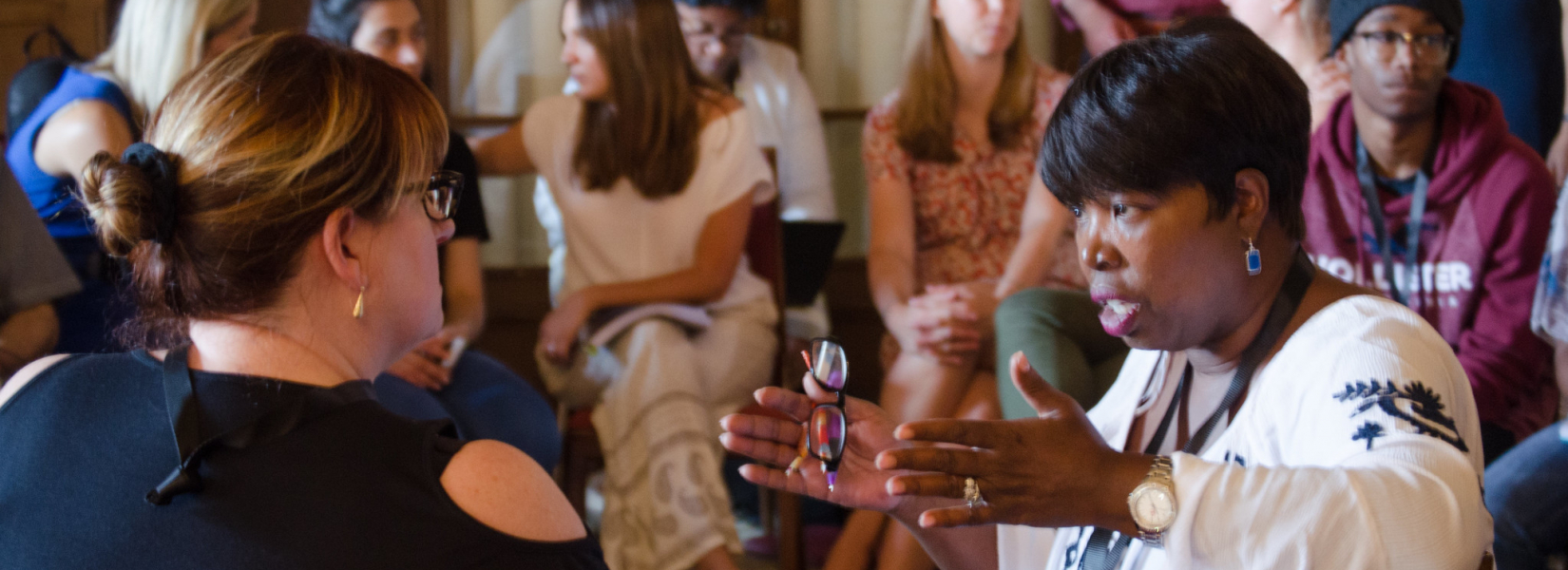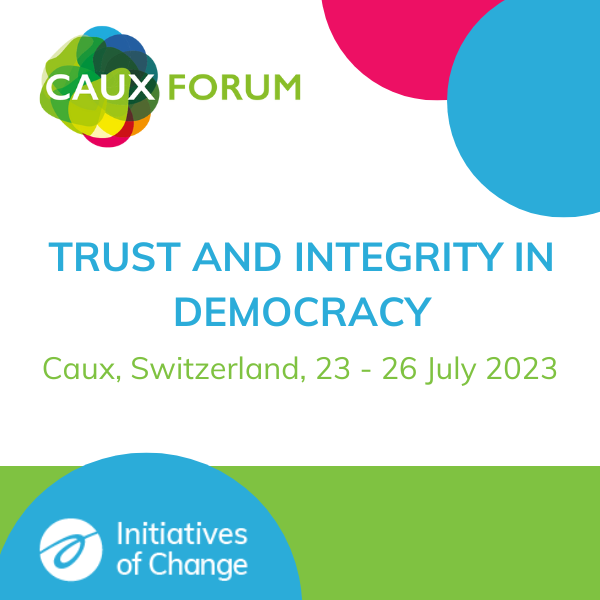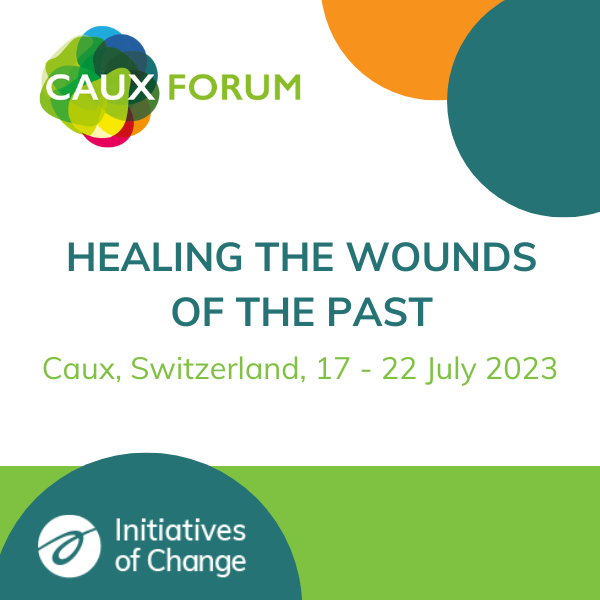Healing Memory: A pathway to human security
Just Governance for Human Security 2018
08/07/2018
Wounds inflicted upon generations past and present across the globe cannot be overlooked. They leave their scars and often remain unhealed, perpetuating conflict. More than ever, healing is needed to break cycles of violence and to build global change. This was a central focus at the recent Just Governance for Human Security (JGHS) event of the Caux Forum.
Progress towards human security is often blocked by entrenched attitudes and relationships that lack dialogue and trust. ‘Healing memory is crucial to human security,’ said Jonathan Rudy, Senior Adviser to Alliance for Peacebuilding. ‘Transforming enemies into friends through love and forgiveness is a long and drawn-out process whereby we need community, we need each other. It is essential work to restore all of our relations.’ Central to healing memory is each person’s unique story and experience, their need for acknowledgement and to be heard, and reconnection to that which has been disconnected.
This need became apparent during a conversation with Laurent Munyandlikirwa, a Rwandan refugee based in France. Laurent, a member of the Hutu ethnic group who married a Tutsi woman, lost his daughter during the Rwandan genocide. He spoke of the pain of discrimination in healing memory. Hutus felt they had no mechanism through which to remember their friends or family killed in Tutsi reprisals during and after the genocide, nor even the right to do so. His story highlighted the need for healing of memory on all sides of the conflict. It is often all too easy to group people into categories of victim and perpetrator, without recognizing the multi-dimensional nature of conflict.
‘How can you heal memory when the present is still traumatizing?’ asked Rajendra Senchurey, a member of the Dalit Rights Delegation from Nepal and Bangladesh. Rajendra, a Dalit himself and a strong advocate for a casteless society, explained that Dalits, often regarded as ‘untouchables’, experience multiple forms of social exclusion, discrimination and poverty by mere fact of their birth. He stressed the need for redistribution, building trust in institutions, legal provision against discrimination and improved education and economic opportunities. Such acts of inclusion are precursors to healing memory at a systemic level.
Haydee Dijkstal, an international criminal and human rights lawyer, said that healing memory can allow for accountability and justice to be pursued, either in the form of traditional court processes or truth and reconciliation commissions. Both have benefits and limitations. The chosen route will often depend on what victims need from the process – to have their full story told, or for responsibility and accountability to be assumed by the perpetrators.
Pain and trauma not transformed is transferred. There is no ‘one size fits all’ approach. What is critical is for stories to be heard and acknowledged, for unjust and unequal systems to be challenged and for justice to be pursued in order to heal memory and, in turn, pursue human security.






























